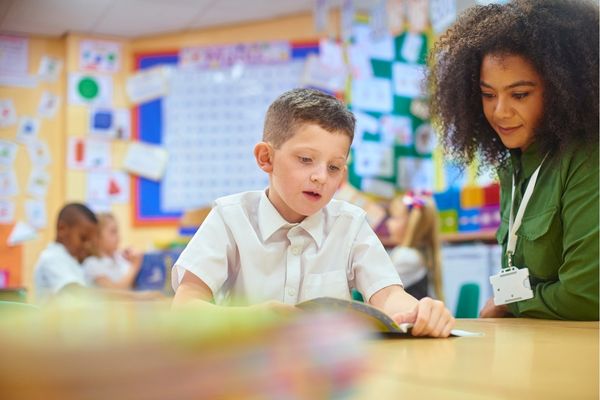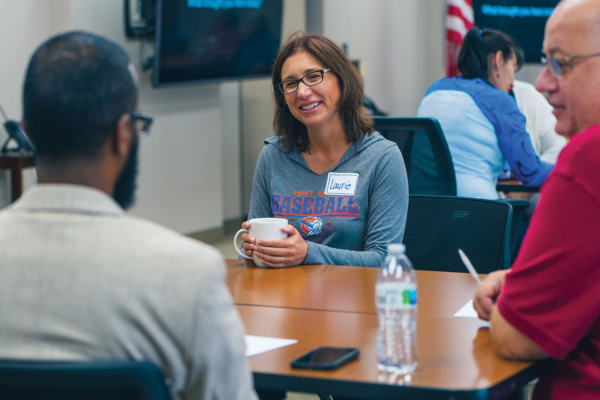Harmful Assumptions About Students With Disabilities
September 01, 2015
My View
By the start of 10th grade, I had accepted that getting a B grade was the best I could do in social studies or English classes. I was diagnosed with dyslexia when I was 7. After years of schooling, I had decided that with the reading required in those classes, it was hard enough to get a B. I wouldn’t be able to do any better.
After the first few months of social studies, I was working hard, but I was getting a C. Surely I could do better. I decided to meet with my teacher, Ms. Sharma. I told her I wanted to perform better in her class, and I asked for her help. She agreed I could raise my performance, and she taught me strategies to help me study. She never gave me less work or reading than the other students. Instead, Ms. Sharma taught me how to become efficient when studying. With her continuing support, my improvement was gradual but steady. Ultimately, I got an A- in her class.
With her high expectations and support, Ms. Sharma had shattered the limitations I had imposed upon myself, and she taught me to expect more of myself.
Attitudinal Hurdles
Educators can have a profound impact on the lives of the students they teach. For students with disabilities, whose learning needs fall outside the “typical,” that personal impact is even more critical because, in school, those students face many barriers. These barriers can be in the curriculum itself. For a student with a reading disability, such as dyslexia, having access only to written texts can be a major hurdle.
Barriers also can be attitudinal. These arise from the overwhelming assumption that children with disabilities can’t be successful in school. All too often, educators lower their expectations.
In a recent book co-authored with Thomas Hehir, a professor of practice in learning differences, we describe the paths of 16 students with disabilities who attended Harvard. These students are remarkable, but their academic success was not simply the result of individual willpower. For most, their paths could have ended in a much different place. Fortunately, these students had educators in their K-12 schooling who challenged the attitudinal barriers about children with disabilities and held them to high expectations.
Erin, who is deaf and has been losing her vision, had a teacher in 3rd grade who just didn’t get it. The teacher had her sit next to the air conditioner in class — even though it nullified the benefit of her hearing aids. Erin knew the teacher didn’t want her in class. She struggled to understand what was happening the whole year.
The following year, Erin’s parents were called into school. Her parents were concerned her 4th-grade teacher wanted her moved to a separate classroom. They were right. The teacher wanted her transferred, but to their surprise this teacher, recognizing Erin’s potential, advocated for her placement in a gifted program.
Brian, diagnosed with a reading disability, was the one student who did not credit his parents in helping him succeed. He came from a low-income family he describes as dysfunctional. After several years in segregated classrooms, Brian said it was his special education teacher who pointed out he didn’t belong there. She pushed him into general education where he would be held to higher expectations. Of his teachers, Brian remarked: “If it wasn’t for them, I don’t know where the hell I’d be right now.”
Daniel was diagnosed with spastic cerebral palsy shortly after birth. When he entered an early intervention program, he didn’t communicate. After observing Daniel, his teacher made sure to tell his parents, “Don’t let anyone try to tell you your son isn’t intellectually capable.”
Erin and Brian have since received their master’s degrees from Harvard and now work for nonprofit organizations. Daniel received his undergraduate degree from Harvard and is pursuing a Ph.D. in political science from Stanford.
Unleashing Potential
It’s much easier to fall back on assumptions — the child who can’t read won’t do well in classes with reading, the child who can’t hear can’t participate in class and the child who can’t speak isn’t smart. But it’s the educators who challenge these assumptions who make a huge difference in students’ lives.
Not every child will go to Harvard. But every child deserves the opportunity to reach his or her potential. To give students with disabilities this opportunity, educators should take the harder path, remove the barriers and hold all kids to high expectations.
Advertisement
Advertisement
Advertisement
Advertisement



